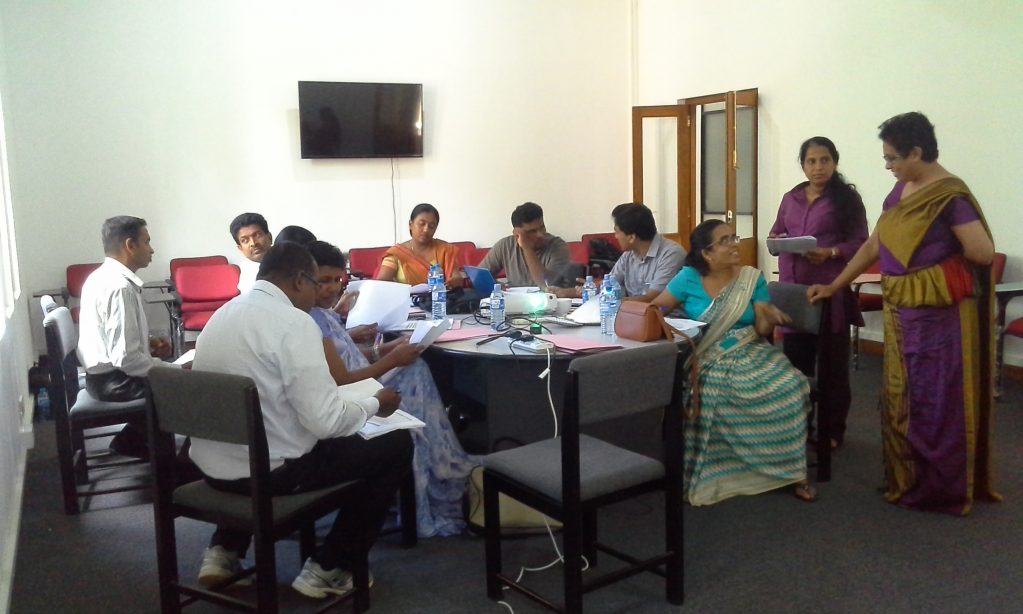APAARI-IFPRI Partnership in Southeast Asia and the Pacific

APAARI-IFPRI Partnership in Southeast Asia and the Pacific
IFPRI INFO: Conversation - collaboration - community
IFPRI INFO: Conversation - collaboration - community
A renewed vision for agricultural research in Sri Lanka
June 5, 2018
May 21, 2018.
At the ASTI launch workshop in Sri Lanka, held late April at the University of Peradeniya, organizers from the university’s Department of Agricultural Economics and Business Administration brought nearly 30 representatives from agricultural research agencies around the country together to discuss the status and trends of agricultural research investment in Sri Lanka, clarify the methodology of the ASTI data collection process, and encourage completion and submission of surveys for the current data collection round.
The workshop had a strong turn-out, with 28 of the country’s 39 agricultural research agencies attending, and a diverse group of representatives – from recent graduates to senior academics, and more females then males. (A second workshop was held early May for those who could not attend.)
Sri Lanka is working to reverse a downward trend in its public agricultural research system, which has struggled with fragmentation, steadily declining public investment (which fell by one-third from 2000 to 2009) and difficulty recruiting and retaining talented research staff due to government recruitment restrictions and low public-sector salaries.
In addition, as Chatura Wijetunga, Research Fellow at the University of Peradeniya’s Faculty of Agriculture explained, there is often a disconnect between the research priorities of donors, who fund universities, and the national government.
The presenters made clear the importance of data to inform policies that can address these constraints – and the workshop participants, in turn, were highly motivated to complete their data collection, bringing their specific questions about definitions and indicators that make up ASTI’s methodology.
Their efforts are already paying off. “We have already received responses to the questionnaire from the 13 representatives who attended the firs workshop,” said Jeevika Weerahewa, Professor of Agricultural Economics at the University of Peradeniya and ASTI Focal Point for Sri Lanka. “We will also draft a paper illustrating the evolution of institutional framework and public expenditures on agricultural research, together with the survey findings.”
In her presentation, Dr. Wijetunga concluded that Sri Lanka’s agricultural research system must shift from being supply-driven to more market-driven if it is to contribute to economic growth. With the data to back up this message, Sri Lanka’s research agencies are keen to take the ASTI agenda forward towards improving the country’s agricultural research system.


